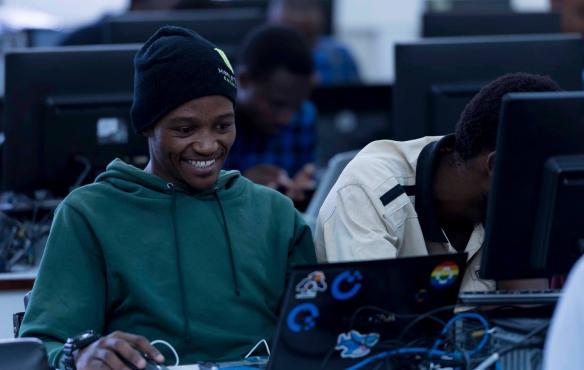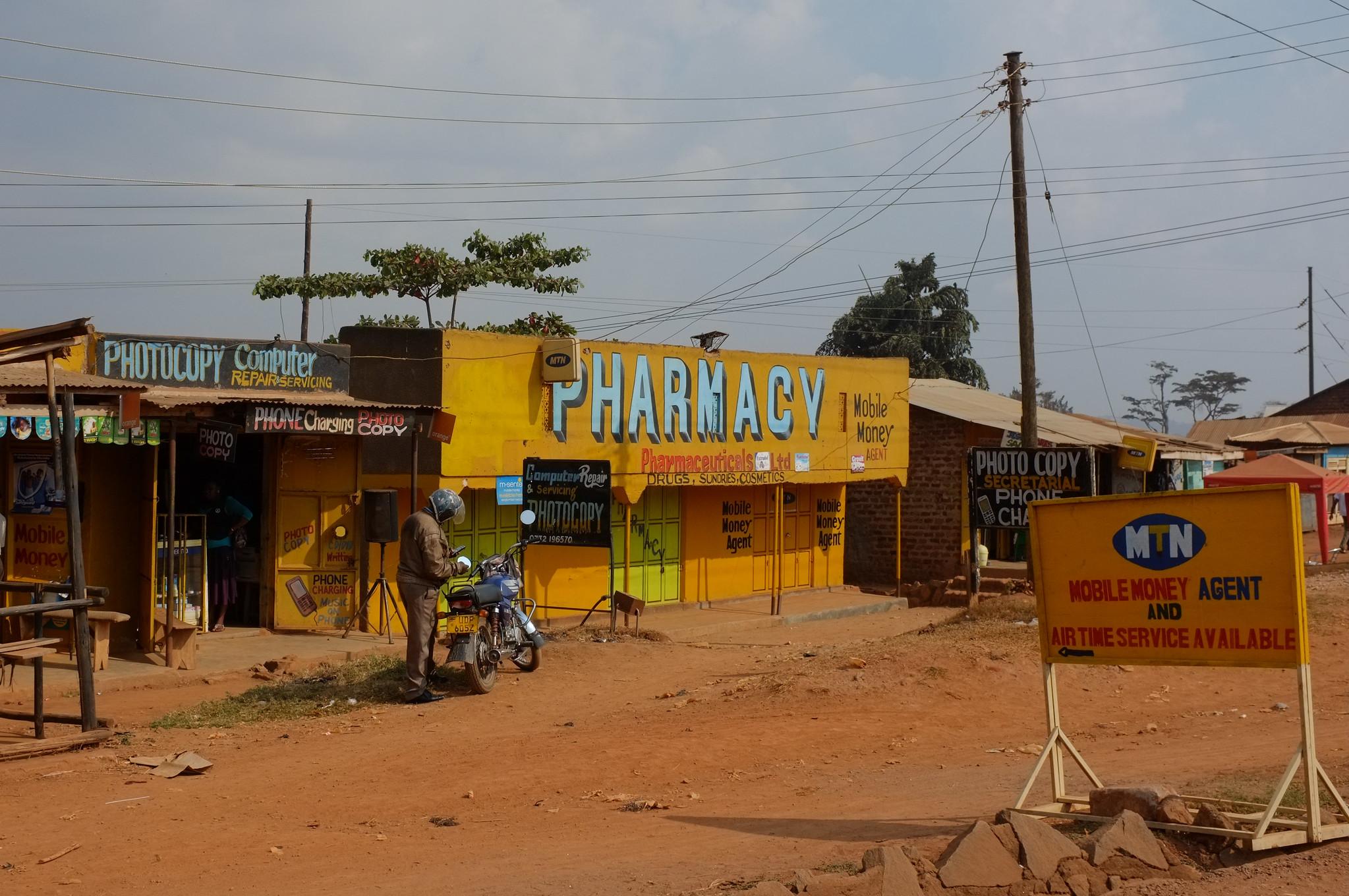Healthcare can be simplified by bringing it to the doorstep of people living in underserved areas. In remote areas, businesses can go the last mile by using available resources and technology.
It is critical to raise awareness and address non-communicable diseases, often overshadowed by the pandemic but also leading to more victims in low-income communities.
Providing affordable choices can improve health access for different parts of the economic pyramid.
Using a holistic approach and supplementing health products with information builds trust and engagement.
Inclusive Business can provide healthcare to the underserved.
Healthcare is often complicated, and a lack of awareness or availability of affordable options can particularly hinder those living in remote areas from accessing optimal services. Health innovations can make healthy options more accessible and simplify healthcare by bringing it to the doorstep.
For example, iDrishti, an inclusive business providing eye care in India, supplements its district hospitals with a mobile eye clinic that can reach remote villages and even provides eyeglasses. In Colombia, healthcare services business Omnivida provides “Angels” who come to patients to provide them with empathetic, personalized approaches to health challenges.
In remote areas, businesses can go the last mile by using available resources and technology. For example, Dawaa Dost sells medicines online in India using a network of local general stores called Kiranas. “We want to reach a billion Indians by 2030, and we will tap into an existing resource network to achieve this goal. There are 15-18 million Kiranas (small grocery stores) in India that cover every nook and corner of the country. Our tech infrastructure, enabling QR code purchasing, allows us to sell medicines via Kirana stores,” says Amit Chaudhary, the founder of Dawaa Dost.

Distributing medical products in remote areas can be challenging.
While Covid-19 has dominated our thoughts, deaths from non-communicable diseases (NCDs) continue to rise and are particularly impacting poor communities. Every year, 15 million people between the ages of 30 and 69 die from NCDs, 85 per cent of whom are living in low and middle-income countries. It is often difficult for patients to access affordable care for these diseases.
Around the world, inclusive businesses are tackling this challenge. Omnivida serves primarily chronic disease patients in Colombia, with a focus on cancer, diabetes and high-risk pregnant women. Their holistic care model offers free patient services: “Our service is completely free for our patients, as our business model is structured around financing our services through the pharma industry, providers, and insurers. Furthermore, we provide those allies with tools to optimize their populations’ health management, besides generating important savings and improvements in their processes,” explains Mateo Gómez, Growth Director at Omnivida.
In Kenya, where more than 40 per cent of all hospital deaths are due to non-communicable diseases, lab of tomorrow supported online Health Games as an innovative way to raise awareness of NCDs, particularly among the youth. “We see Health Games as an effective educational tool because the learning process is fun, and the data-driven approach allows us to provide targeted learning content for each player,” says Lisa Sophia Zoder, Project Manager of lab of tomorrow.

Health Games can educate young people on non-communicable diseases.
Providing products and services that increase patient health in underserved areas benefits from an approach that includes a range of choices. Health innovations include healthy and affordable options. For example, in Nigeria, the founders of plant-based food pioneer VeggieVictory ensured that their products would match the price of beef, lower than in many other countries, to enable healthy alternatives for more people. BabyGrubz, which provides nutritious baby food, has examined ways to make their products more affordable, including producing smaller sachets: “We constantly are looking for ways to bring down production costs through innovative raw materials and bulk production, and we are currently looking into sachetization of our products,” founder Seun Sangoleye told us. These products provide a range of affordable options, increasing choice for customers.
iDrishti’s model is also based around providing options. “We have a philosophy of allowing patients to have choice. The intent is to make sure that we have products that can service any layer of the economic pyramid,” founder Kiran Anandampillai says. For example, they provide eyeglasses for sale at a range of prices because there is a small economic pyramid even in a village.

Inclusive Business can improve health access and give patients a choice.
Health insurance is not always accessible and requires trust and awareness. The SAGABI partnership, a joint initiative by GIZ, Allianz and BIMA, found that a holistic approach was more effective. SAGABI’s approach centers on health insurance complemented by digital health services.
“Since people’s problems and concerns are often interrelated and complex, it is not sufficient to provide insurance as a stand-alone product. Instead, it is necessary to apply a holistic approach that increases trust, understanding and engagement of low-income customers. The New Customer Journey used a hybrid approach designed to let customers shape the services around their needs and pain points and help them make informed decisions about their health and finances,” Matthias Range of GIZ explained.
In Nigeria, BabyGrubz also provides a holistic approach by complementing the sale of affordable, high quality baby food with nutrition counseling to raise awareness of proper feeding techniques. Similarly, Dawaa Dost not only provides affordable medicines, but also works to increase medicine adherence and provide credible online information.
Inclusive businesses working to create innovative models and raise awareness provide hope that affordable, accessible health care, services and nutrition can be expanded to those living throughout the world, among all economic levels of society. Addressing global health equity means providing accessible health solutions for all.

Global health equity means accessible health solutions for all.
- World Health Organization, Health Equity Monitor
- World Health Organization, "Noncommunicable diseases"
- World Economic Forum, "How nutrition can improve societal resilience"
- TIME, "Now is the Time to Address the Global Health Equity Gap"
- Access to Medicine Foundation, Access to Medicine Index (focus page on Inclusive Business)
Photo credits
- Slideshow: Man watching phone: © GIZ ; Baby: © Baby Grubz ; cafe staff: © VeggieVictory
- Body: Eye care in Tanzania: © GIZ/Dirk Ostermeier ; "Medical logistics team distributes PPE in fight against COVID-19" by USAFRICOM is licensed under CC BY 2.0 ; Health Games workshop: © GIZ ; "Kampala Pharmacy" by Inklaar is licensed under CC BY-NC-SA 2.0 ; Hospital: © GIZ/Dirk Gebhardt



